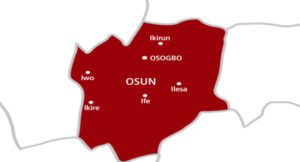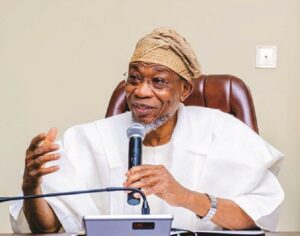


The kleptocratic paradox of Nigeria’s relationship with money (2)
By Dr. Jimoh OLOREDE
For emphasis, Nigeria’s total public debt stock as at 2023 when President Bola Tinubu, GCFR, assumed office, was N87.91 trillion, according to the Debt Management Office (DMO). What an inheritance! Truly, uneasy lies the head that wears the crown. The tasks before Mr. President are humongous! He must fight corruption, which has eaten so deep into the fabric of our national system, with all his might, if he intends to achieve anything good in his government.
The Chairman of the Economic and Financial Crimes Commission (EFCC), Ola Olukoyede, while receiving the management team of the Revenue Mobilisation Allocation and Fiscal Commission led by its Chairman, Mohammed Shehu, recently, was quoted to have said: “When I look at some case files and see the humongous amount of money stolen, I wonder how we are still surviving. If you see some case files, you will weep. The way they move unspent budget allocation to private accounts in commercial banks before midnight at the end of a budget circle, you will wonder what kind of spirit drives us as Nigerians.”
Answering the EFCC Chairman’s (rhetorical) question, I would say the kind of, and the name of the spirit that drives us as Nigerians, especially some of our public office holders, who are custodians of our resources, is both Kleptocracy or thievocracy and kleptomania. While the former (Kleptocracy) refers to a government whose corrupt leaders (kleptocrats) use political power to expropriate the wealth of the people and the land they govern, typically by embezzling or misappropriating government funds at the expense of the wider population, the latter (kleptomania) refers to a mental health disorder that involves repeatedly being unable to resist urges to steal items that you generally don’t really need (Wikipedia).
This spirit has almost become so endemic in the Nigerian system to the extent that those who are waiting for any appointment opportunity to steal are more than those who had already stolen or those who may be currently stealing.
This is a big challenge and a daunting task for the President and his anti-financial crimes agencies like the Economic and Financial Crimes Commission (EFCC), the Independent Corrupt Practices and other related Offences Commission (ICPC), and other allied agencies of government.
The tides of this ugly trend in Nigeria must be stemmed for any meaningful and sustainable development to happen. Conditions that give room for the perpetuation of kleptocracy in Nigeria and kleptomania of some Nigerians, especially some of our public officials, must be checked and addressed intentionally. Some of these are the Nation’s weak institutions, which create environment conducive to corruption, personal aggrandisement driven by a desire for wealth, status, and power, systemic issue, which is an ingrained problem in this country, lack of accountability combined with a culture of impunity, and colonial legacy, which has contributed to a culture of exploitation, where leaders prioritise personal gain over the well-being of the people.
President Tinubu’s Renewed Hope Eight-point Agenda is plausible and laudable. However, the plausibility and workability of his lofty Agenda would only be brought to fruition with a patriotic devotion to the corruption fight. He would have to barricade the loopholes and other motivational drives for stealing in the country by providing adequate fiscal facilities for Nigerians, where necessary, as a lack of financial security drives some people to steal. Another is fear of poverty, which drives many to prioritise accumulating wealth.
The government should also embark on cultural value reorientation through the National Orientation Agency (NOA) and other community engagement agencies of government. This is recommended because the importance of wealth is too deeply ingrained in our culture.
There is also the issue of lack of social safety nets in Nigeria. The absence of robust social welfare systems encourages a pursuit of personal wealth as the only safety net for many Nigerians. There should be a national provision for this, as well as unhindered access to credit.
Some Nigerians are known for expensive lifestyles and survival mentality, whose desire to keep and maintain ignites lust and unwholesome obsession for material wealth. The government should devise a means to discourage this extravagant and unproductive lifestyle habit.
The country’s historical context evident in Nigeria’s history of economic instability, corruption, and inequality has created a mindset of inordinate quest for money with a counterintuitive belief that having money is the ultimate security. This ugly tide must be decisively stemmed, as it spreads like a whirlwind, which does not blow our Country, Nigeria, its image and corporate existence, any good.
Yet another problem is that our system of revenue generation allows leakages in mobilisation and appropriation of funds. According to Olukoyede, “the country would be fine, if we can block some of these leakages and have 50 per cent of capital project execution in Nigeria.” It’s not enough using EFCC and allied agencies to investigate and recover funds already stolen; measures to prevent stealing should be put in place.
The modus operandi of the EFCC and the way the Agency actually operates, however, show it’s working not on preventive measures, but on a reactionary template. The Agency’s mode of operation should be rejigged with introduction and inclusion of mechanisms that will automatically block the loopholes and leakages thereby preventing stealing from any quarters of the national economy.
Dr. Olorede is the Head, Department of Strategic Communication and Media Studies, The Federal Polytechnic Offa, Kwara State. He writes via [email protected] and can be reached on 08111841887.



